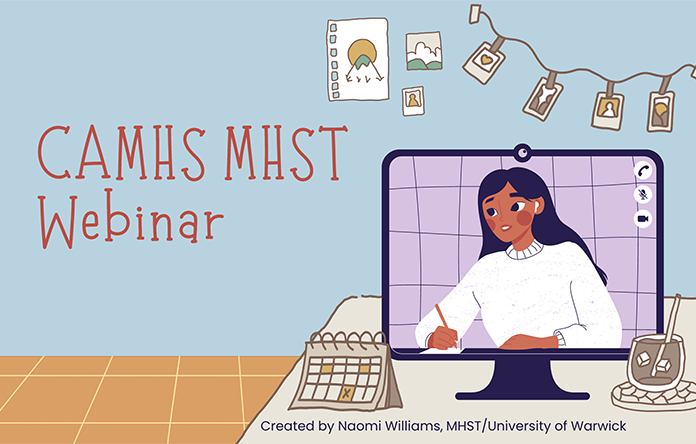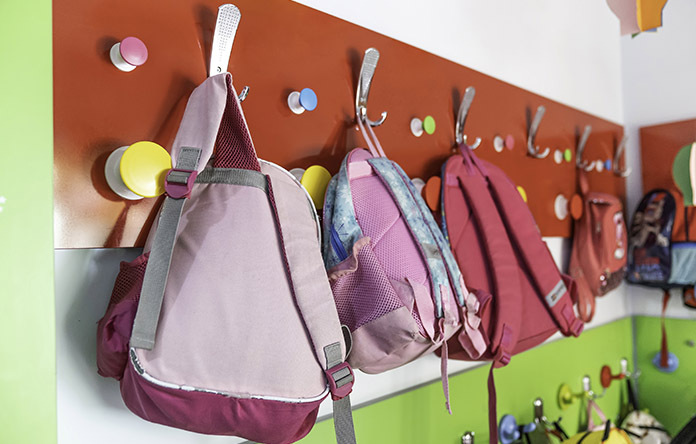
We had the pleasure of welcoming three guest speakers from Nottinghamshire Mental Health Support Team (MHST) to our “sharing and learning” webinar series. This is a platform for those working in children’s mental health services to share best practice and learn from one another. This time, Nottinghamshire MHST discussed how they have adapted their service to better support neurodivergent children and young people.
Our guest speakers were Naomi Williams, Clinical Specialist, Lucy Fielding, Specialist Practitioner and Jude Edwards, Educational Mental Health Practitioner (EMHP).
Read on to uncover their strategies and top tips to other MHSTs looking to adapt their service offer to include more neurodivergent children and young people looking for mental health support.
Watch the full webinar recording here.
What do we mean by Neurodivergent and SEND children and young people?
Neurodiversity is a word used to explain the unique ways an individual’s brains work. While everyone’s brain develops similarly, no two brains function alike. Being neurodivergent means having a brain that works differently from their peers.
As laid out in the SEND Code of Practice, 2015, SEND refers to a child or young person aged 0-25 who has special educational needs or disability or if they:
- Have a learning difficulty or disability which makes it much harder for them to learn than other pupils of the same age.
- They require special educational provision to be made for them.
There are 1.5 million SEND Children and 190,000 waiting for a diagnosis.
The team at Nottinghamshire MHST recommend normalising treating every child or young person differently and recognising individual needs. Mental health practitioners should aim to use clear and concise language around anxiety and adapt activities, set out below, in a classroom setting.
Best practise to support neurodivergent CYP:
During the webinar, the team at Nottinghamshire MHST demonstrated some of the adaptations MHSTs, and those working in schools and education settings, can make to their service offering:
Communication
You can use the “Universal Design for Learning” method which is related to making learning material more accessible. I.e
- Multi-media learning
- Use dark backgrounds and lighter fonts
- Uncluttered slides with key terms in bold
- Normalise use of communication cards and visual trackers
- Clear concise language when offering support, providing different options if open questions do not seem helpful
Classroom Culture
- Encourage whole class movement breaks
- Normalise use of fidget toys and doodling
- Clear expectations and learning objectives provided at beginning of lessons
- Encourage creative approaches to homework and assignments that incorporate a universal design for learning
Environmental
- Classroom Sensory Checklist: Direct sunlight, Temperature, Time of day, Background Noise
- Classroom layout: Side by side learning and reduced distractions around key learning areas such as white boards
Top Tips for EMHPs to promote classroom culture:
Taking the time to get to know the individual child and understand their individual needs is extremely important.
- Try to use individualised strategies and interventions. A blanket approach to inclusion can further isolate neurodivergent children.
- Think sensory – take a step back and consider the environment, using the Classroom Sensory Checklist.
- Feeling heard and understood is extremely powerful – even one simple change can make a big difference for a young person.
- Encouraging creative approaches to homework and utilising the Universal Design for Learning strategy.

Nottingham MHST also delivers a Parents SEND & Anxiety group, which they highly recommend incorporating into your service offer. The workshop is centred around SEND and Anxiety, but also provides psychoeducation and strategies to help parents better understand and support their children.
They’ve also found that parents really value coming together to share their stories and feel listened to. It’s been really powerful for parents to connect with one another and share their own strategies that have worked for their children.
Nottinghamshire MHST have future plans to adapt a range of therapies to better support neurodivergent CYP including:
- Mindfulness Based Cognitive Therapy
- Acceptance & Commitment Therapy Groups
- Adaptations to evidenced based psychological therapies workshops – following the Autism Intellectual Disability and Clinical Practice CAMHS (AIDE Study) created by Naomi Williams, who is undertaking the research study as a Phd Fellow at Warwick University.
AIDE Study animation:
Nottinghamshire MHST have also gathered a list of organisations and resources which may be helpful to you: the SEN More Support & Information Resources Booklet:
The team at Nottinghamshire MHST actively encourage you to get in touch with them, should you wish to incorporate any of these strategies into your service offer.
If you would like to get in touch with Naomi Williams about any of the resources and best practice guidelines outlined in this blog, please get in touch via:
Look out for the next “sharing and learning” webinar for MHSTs:
We will also be in touch with our next webinar dates soon, so keep an eye out for the next in our “sharing and learning” webinar series for MHSTs.
In the meantime, if you would like a 45 minute overview of iaptus CYP, the digital care record helping over 60 CYP organisations nationally, to monitor Routine Outcome Measures (ROMs), report on the Mental Health Service Data Set (MHSDS) and support the growth of your service, you can do so here.


